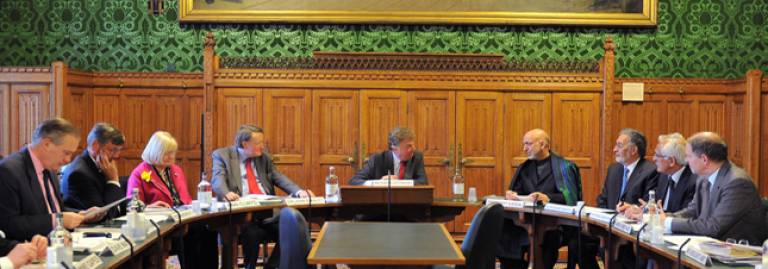PACAC adopts Robert Hazell's recommendations on Pre-Appointment Scrutiny
17 September 2018

On 17 September the Commons Political and Constitutional Affairs Committee (PACAC) published their report on Pre-Appointment Scrutiny, recommending changes in the way Select Committees approach the task of scrutinising nominees to the most senior public appointments. PACAC’s report drew heavily on recommendations by the Constitution Unit's Robert Hazell, who was the first witness before the Committee on 15 May, and made two written submissions, on 1 May and 5 June. In particular PACAC agreed that Select Committees
- · Should adopt a more flexible and strategic approach
- · Should not be bound by the Cabinet Office list of the ‘top 50’ appointments
- · Should feel free to scrutinise other senior public appointments
- · Should ask candidates to complete written questionnaires before the hearing
- · Should direct any concerns about the recruitment process to the appointing Minister or the Permanent Secretary, and not the candidate.
PACAC appended Robert Hazell’s model questionnaire to their report, and agreed that the use of questionnaires might avoid the need for a hearing, or shorten the hearing by enabling the committee to focus solely on matters of interest.
Robert Hazell had conducted two studies of Pre-Appointment Scrutiny Hearings: the first in 2010-11, looking at the first 20 hearings, in a study jointly funded by the Cabinet Office and the Commons Liaison Committee, and published here; the second in 2016-17, looking at a further 70 hearings, and published here. On both studies he worked with a retired senior civil servant, Peter Waller, and was supported by a team of research volunteers: for the second study these were Qalid Mohamed, Turan Hursit and Harmish Mehta.
Robert Hazell said “I welcome PACAC’s latest report. They have accepted all our main recommendations. I hope the Liaison Committee agree, and revise their Guidelines accordingly. If Select Committees adopt a more flexible, strategic and systematic approach, then Pre-Appointment Hearings need no longer be a chore, but will become a really effective tool of parliamentary scrutiny”.
 Close
Close

